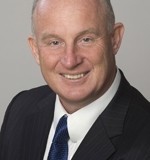From the Penticton Western News – April 5, 2011
by Steve Kidder
Politics sometimes makes strange bedfellows, and it appears
environmental activism does as well. At least for former Social Credit
cabinet minister Rafe Mair, who found himself sharing the stage with
provincial Green Party and NDP candidates at the Shatford Centre
Saturday afternoon.
It’s not about the politics of it, said the always outspoken
columnist and talk show host. While Julius Bloomfield, deputy leader of
the provincial Green Party, was also speaking at the event, Mair said
they didn’t bring the Town Hall Tour to Penticton in order to support
the Greens, either provincially or federally. Rather, he just wanted to
get the message out about environmental and energy issues facing the
people of B.C.
“I am not supporting the Greens, I am supporting our own
organization, which is called The Common Sense Canadian,” said Mair. “We
have no political affiliations at all, but we do support candidates
that have the same views on the environment and energy as we do.”
Mair partnered with award-winning filmmaker
Damien Gillis to create the organization, which he explains focuses on
two related, major issues: B.C.’s energy policy and the environmental
impact of developments like run-of-the-river power projects and the
proposed Enbridge Pipeline.
Even if these things aren’t happening locally,
Mair said that all B.C. residents have a stake in what is going on, in
every corner of the province, and need to hold governments to task.
“The energy policy that was brought in by the
Campbell government is absolutely preposterous,” said Mair. “We got
private companies buggering up our rivers, making power that Hydro can’t
use — they can only make it during the spring runoff — and forcing
Hydro to buy that power whether they want to or not.”
That leads to an “absurd” situation, Mair said,
claiming that BC Hydro will have to buy the power at three times the
price they can export it for, instead of making it themselves at a tenth
of the cost that the independent power producers can.
“BC Hydro is bankrupt. It’s not bankrupt, because
it always has the ratepayers to call on to bring in the money, but if
they were in the private sector right now, it would be in Chapter 11
protection,” said Mair, adding that the environmental argument against
independent power projects is just as strong.
“These rivers are buggered up, there is no doubt
about it,” he said. “All the things that live in those rivers are at
serious risk. This is what the Campbell government has done to your
environment and your energy.”
Cameron Phillips, who ran locally for the
provincial NDP in 2009, said he had a hard time making run-of-the-river
projects an election issue during that election.
“This is a ballot box issue. What British
Columbian wants to give up the right to their rivers, to pour millions
of dollars into corporate pockets that would otherwise go into roads and
schools and everything else?” said Phillip.
Mair’s powerful skills as an orator carried the
crowd packed into the recital hall at the Shatford Centre, bringing them
to their feet after a speech, that though short on substantiated facts,
was filled with emotional impact, as was Gillis’ film, Oil in Eden, which was shown prior to the speeches from Mair, Bloomfield and Gillis himself.
Mair said he hopes voters will think about these issues as they question the candidates running for office.
“I hope they will take these thoughts to the
various political parties in the federal race,” he said, adding his
opinion that the current government isn’t doing enough.
“The minister of fisheries is an absolute
deadhead, there is no use talking to her about anything,” said Mair.
“It’s got to change, it really does.”
More information about The Common Sense Canadian is available at www.thecanadian.org.
Read original article




